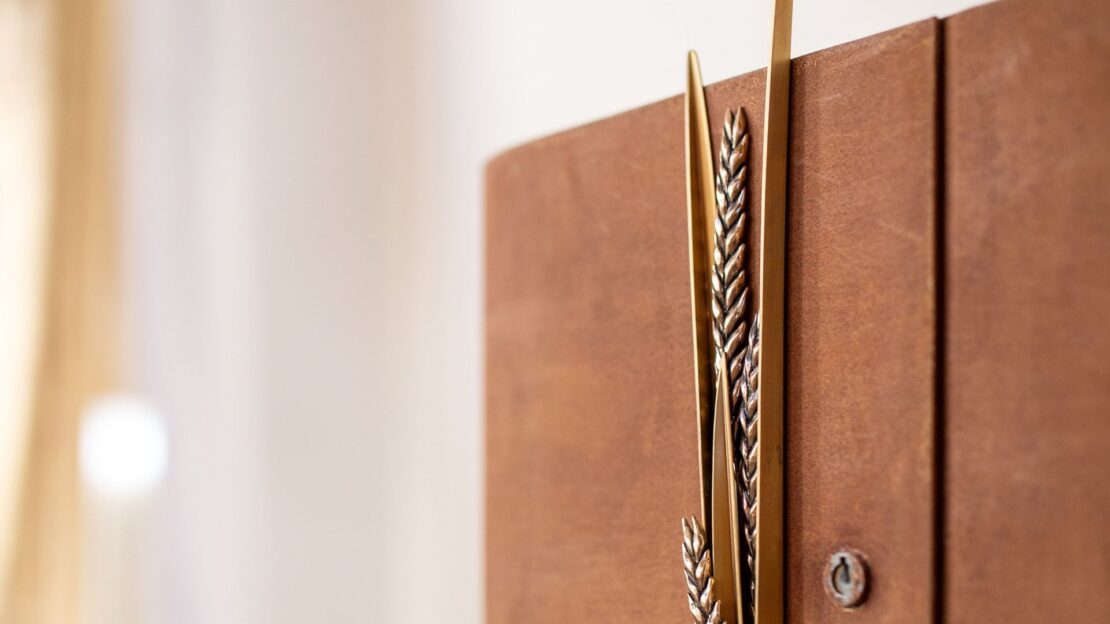Dear brothers and sisters, tonight we are moving into the three significant days of our Christian belief and tradition: Holy Thursday where Jesus shares his last meal and words with his disciples; Good Friday where Jesus completes his earthly journey by his suffering, death and saving of us on the Cross; Holy Saturday where we celebrate the joyful atmosphere of the glorious Resurrection.
The Gospel tonight introduces to us that there are two important events: the event of serving others by washing feet and the event of the Last Supper where Jesus instituted the Sacrament of the Eucharist.
First, at the Last Meal with his closest disciples, Jesus bent down to wash their feet. This action tells us the virtue of humility in serving one and another. But there is something more here, the washing of a person’s feet presents to us a deeper meaning. The feet are the dirtiest part of the body, where they become unclean by walking from one place to the other. The washing of the feet is an act of washing the dirt and dust and makes the feet clean again.
Similarly, by carrying out this action every Holy Thursday, Jesus invites us to wash, to clean not only our feet but also make ourselves clean again. This year, due to our pandemic crisis and keeping physical distancing, we are unable to imitate Jesus in washing one another’s feet physically, but it does not mean that we cannot tune into this humble act of serving one another. This year’s situation challenges and invites each one of us to wash our own feet and reflect on how we can wash each other’s feet and serve people both now and again in the future.
There is a message of self-care here, we cannot wash and serve other people when we are unable to do it for ourselves first. For instance, think of the aeroplane safety instruction on the use of the oxygen mask: with associated reminders that the passenger should always fit his or her own mask before helping children, the disabled, or any other person requiring assistance.
This safety practice on the aeroplane or self-care action somehow is instructive for us on how we are going to imitate Jesus’s action in washing feet this year: by washing our own feet before assisting others.
Second, in addition, the Lord, having loved those who were his own, loved them to the end. In order to leave them a pledge of his love. Our Lord shared with us the first Eucharist and invites us to participate in memory of Him. The Eucharist is the source and summit of our Christian life. Through this source, we are strengthened to renew and regenerate ourselves each time we celebrate the Eucharist. Especially, at this challenging and extraordinary time, many of us are unable to share and receive the Body and Blood of our Lord directly, but there is an invitation to receive him spiritually and tune into his passion, death and resurrection.
The bread is broken for us, the chalice is poured out for us. During this time, we cannot be together, we cannot share the bread of life and drink from the chalice of salvation at our regular worship place. But, the Eucharist can be lived in our domestic church, and the Eucharist can be given to others by the sacrifices we make. For example the sacrifice of money, the sacrifice of our comforts or our needs. The Eucharist can be understood or can be shared through many acts of breaking ourselves open for one and another.
Let us offer our prayers this evening for the world, for our country, for the universal Church and for our own family church during this pandemic. Through the symbolic action of washing feet, and self-care action, we can be strengthened by the Eucharist to breakdown the physical distancing by reaching out to our family members and friends and neighbours. This can be as simple as calling and talking to them, or praying for one another and assisting one another as we can.
Let us strengthen one another, stay with one another and encourage one another.




Comments
Add Comment